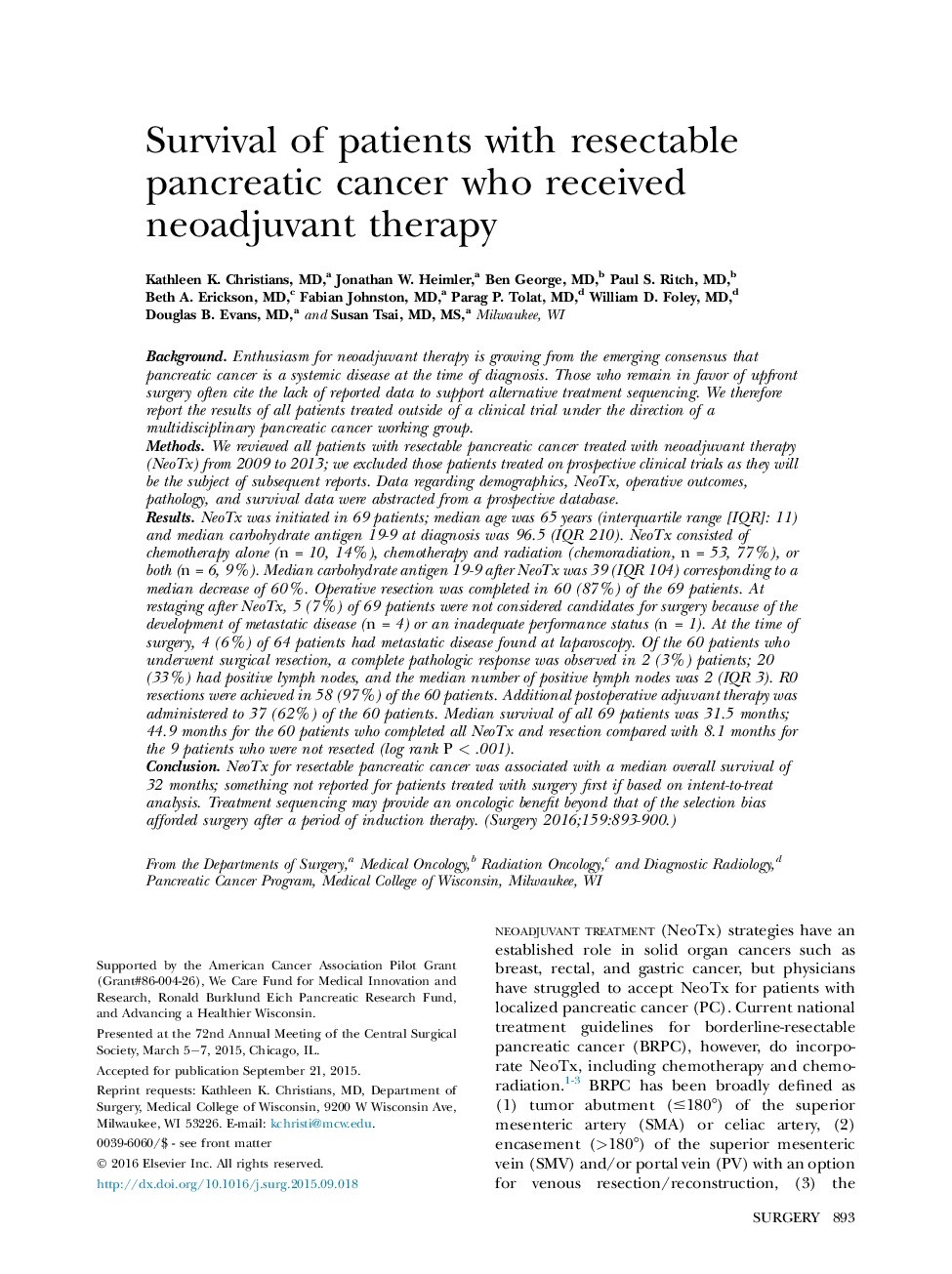| Article ID | Journal | Published Year | Pages | File Type |
|---|---|---|---|---|
| 4306821 | Surgery | 2016 | 8 Pages |
BackgroundEnthusiasm for neoadjuvant therapy is growing from the emerging consensus that pancreatic cancer is a systemic disease at the time of diagnosis. Those who remain in favor of upfront surgery often cite the lack of reported data to support alternative treatment sequencing. We therefore report the results of all patients treated outside of a clinical trial under the direction of a multidisciplinary pancreatic cancer working group.MethodsWe reviewed all patients with resectable pancreatic cancer treated with neoadjuvant therapy (NeoTx) from 2009 to 2013; we excluded those patients treated on prospective clinical trials as they will be the subject of subsequent reports. Data regarding demographics, NeoTx, operative outcomes, pathology, and survival data were abstracted from a prospective database.ResultsNeoTx was initiated in 69 patients; median age was 65 years (interquartile range [IQR]: 11) and median carbohydrate antigen 19-9 at diagnosis was 96.5 (IQR 210). NeoTx consisted of chemotherapy alone (n = 10, 14%), chemotherapy and radiation (chemoradiation, n = 53, 77%), or both (n = 6, 9%). Median carbohydrate antigen 19-9 after NeoTx was 39 (IQR 104) corresponding to a median decrease of 60%. Operative resection was completed in 60 (87%) of the 69 patients. At restaging after NeoTx, 5 (7%) of 69 patients were not considered candidates for surgery because of the development of metastatic disease (n = 4) or an inadequate performance status (n = 1). At the time of surgery, 4 (6%) of 64 patients had metastatic disease found at laparoscopy. Of the 60 patients who underwent surgical resection, a complete pathologic response was observed in 2 (3%) patients; 20 (33%) had positive lymph nodes, and the median number of positive lymph nodes was 2 (IQR 3). R0 resections were achieved in 58 (97%) of the 60 patients. Additional postoperative adjuvant therapy was administered to 37 (62%) of the 60 patients. Median survival of all 69 patients was 31.5 months; 44.9 months for the 60 patients who completed all NeoTx and resection compared with 8.1 months for the 9 patients who were not resected (log rank P < .001).ConclusionNeoTx for resectable pancreatic cancer was associated with a median overall survival of 32 months; something not reported for patients treated with surgery first if based on intent-to-treat analysis. Treatment sequencing may provide an oncologic benefit beyond that of the selection bias afforded surgery after a period of induction therapy.
